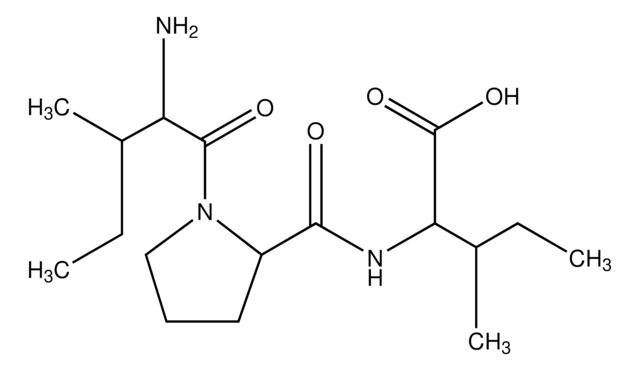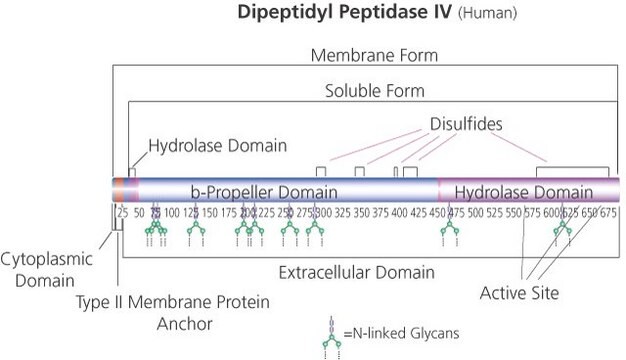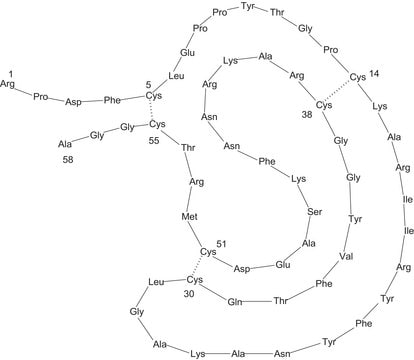416200
Dipeptidylpeptidase IV Inhibitor I
The Dipeptidylpeptidase IV Inhibitor I controls the biological activity of Dipeptidylpeptidase IV. This small molecule/inhibitor is primarily used for Protease Inhibitors applications.
Synonym(s):
Dipeptidylpeptidase IV Inhibitor I, Diprotin A
Sign Into View Organizational & Contract Pricing
All Photos(1)
About This Item
Empirical Formula (Hill Notation):
C17H31N3O4
Molecular Weight:
341.45
UNSPSC Code:
12352200
NACRES:
NA.77
Recommended Products
Quality Level
Assay
≥95% (HPLC)
form
amorphous solid
manufacturer/tradename
Calbiochem®
storage condition
OK to freeze
desiccated (hygroscopic)
color
white
solubility
water: 1 mg/mL
DMSO: 5 mg/mL
shipped in
ambient
storage temp.
2-8°C
General description
A dipeptidylpeptidase IV (DPP IV) inhibitor that inhibits both endo- and exopeptidase activities of DPPIV.
A dipeptidylpeptidase IV (DPP IV) inhibitor.
Biochem/physiol Actions
Cell permeable: no
Primary Target
dipeptidylpeptidase IV (DPP IV)
dipeptidylpeptidase IV (DPP IV)
Product does not compete with ATP.
Reversible: no
Warning
Toxicity: Standard Handling (A)
Sequence
Ile-Pro-Ile
Reconstitution
Following reconstitution, refrigerate (4°C). Stock solutions are stable for up to 6 months at 4°C.
Legal Information
CALBIOCHEM is a registered trademark of Merck KGaA, Darmstadt, Germany
Storage Class Code
11 - Combustible Solids
WGK
WGK 3
Certificates of Analysis (COA)
Search for Certificates of Analysis (COA) by entering the products Lot/Batch Number. Lot and Batch Numbers can be found on a product’s label following the words ‘Lot’ or ‘Batch’.
Already Own This Product?
Find documentation for the products that you have recently purchased in the Document Library.
Hyunyee Yoon et al.
Biomolecules & therapeutics, 29(2), 154-165 (2020-11-06)
This study aimed to investigate whether the antidiabetic drugs dipeptidyl peptidase 4 (DPP4) inhibitors such as evogliptin and sitagliptin affect the membrane DPP4 (mDPP4) enzymatic activity and immune function of T helper1 (Th1) cells in terms of cytokine expression and
Our team of scientists has experience in all areas of research including Life Science, Material Science, Chemical Synthesis, Chromatography, Analytical and many others.
Contact Technical Service






